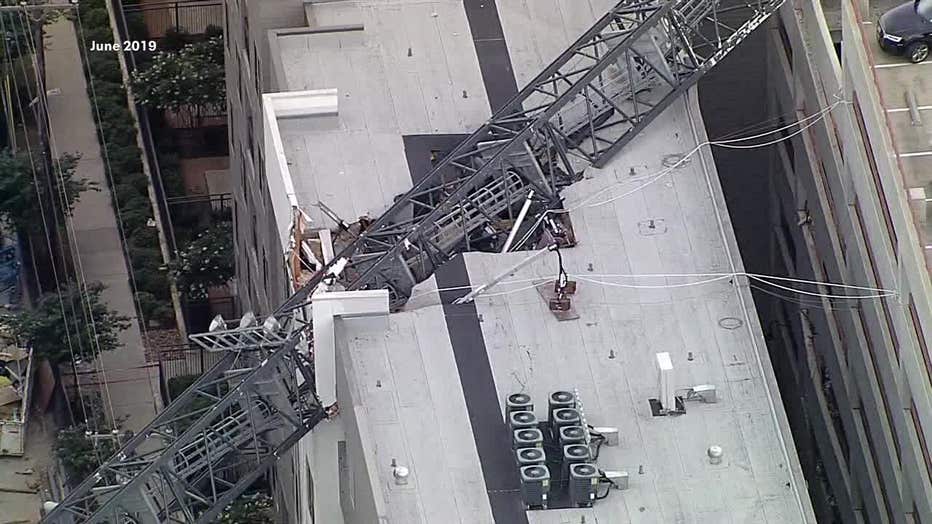Crane operator worked 84 hours week of deadly crane collapse in Old East Dallas, expert testifies

Crane operator worked 84 hours week of deadly crane collapse in Old East Dallas, expert testifies
An expert testified Thursday that the operator of a Dallas crane that collapsed into an apartment complex, killing a 29-year-old woman, had worked 84 hours that week.
DALLAS - An expert testified Thursday that the operator of a Dallas crane that collapsed into an apartment complex, killing a 29-year-old woman, had worked 84 hours that week.
This was the first day of testimony in the case that is seeking damages for the family of the woman who was killed in the collapse.
The expert testified that the crane operator working 84 hours in a week may have led to fatigue, and that could have been a factor in why he failed to properly place the crane into what's called weathervane mode.
The crane collapse happened on June 9, 2019, during a severe thunderstorm.
Kiersten Smith was in her apartment with her fiancé, cooking dinner, when she was killed in the collapse.
Her mother filed the lawsuit seeking to hold the developer and crane company accountable.
During opening statements, all three sides agreed that the crane should have been placed in weathervane mode.
That would have allowed the crane to move with the wind and allow it to withstand 100 mile per hour winds.
The winds the night of the collapse were 70 miles per hour.
But the two companies disagreed about if the crane operator was working for Biggie Crane, or if he, like the crane, were leased to Greystar, making that company ultimately responsible.
FOX 4 asked attorney Chad Ruback, a Dallas appellate lawyer not associated with the case, if this trial could bring about higher safety standards to the crane industry.
"It is possible, if there was a large judgement, it could prompt change in the industry. It is also possible there could be a large judgement and the industry could shrug and say we already do things safely. We did not make a mistake like someone hypothetically did in this case," Ruback said.

The jury will be tasked with deciding if a mistake was made, and if one or both companies are responsible, what amount of damages the mistake would warrant.
The expert on the stand Thursday also testified that the high winds were predicted in weather forecasts at least a week before.


